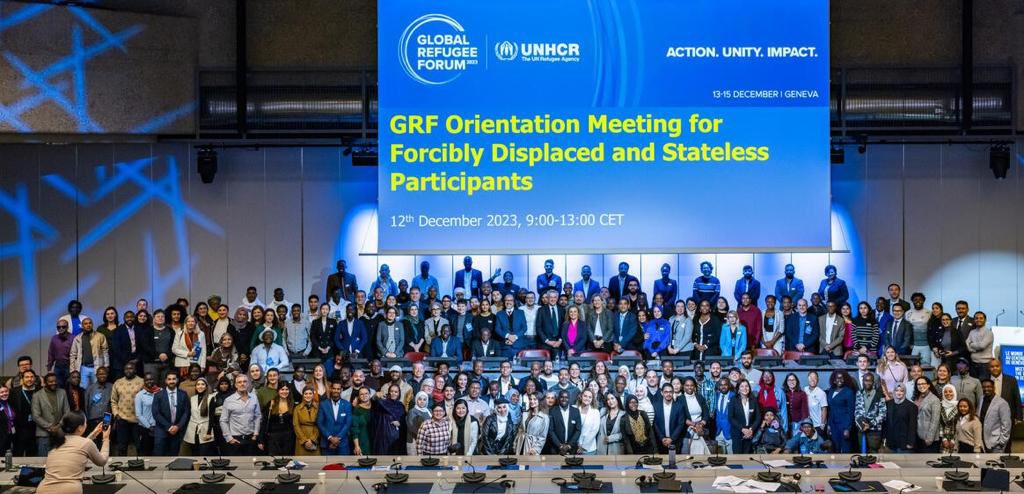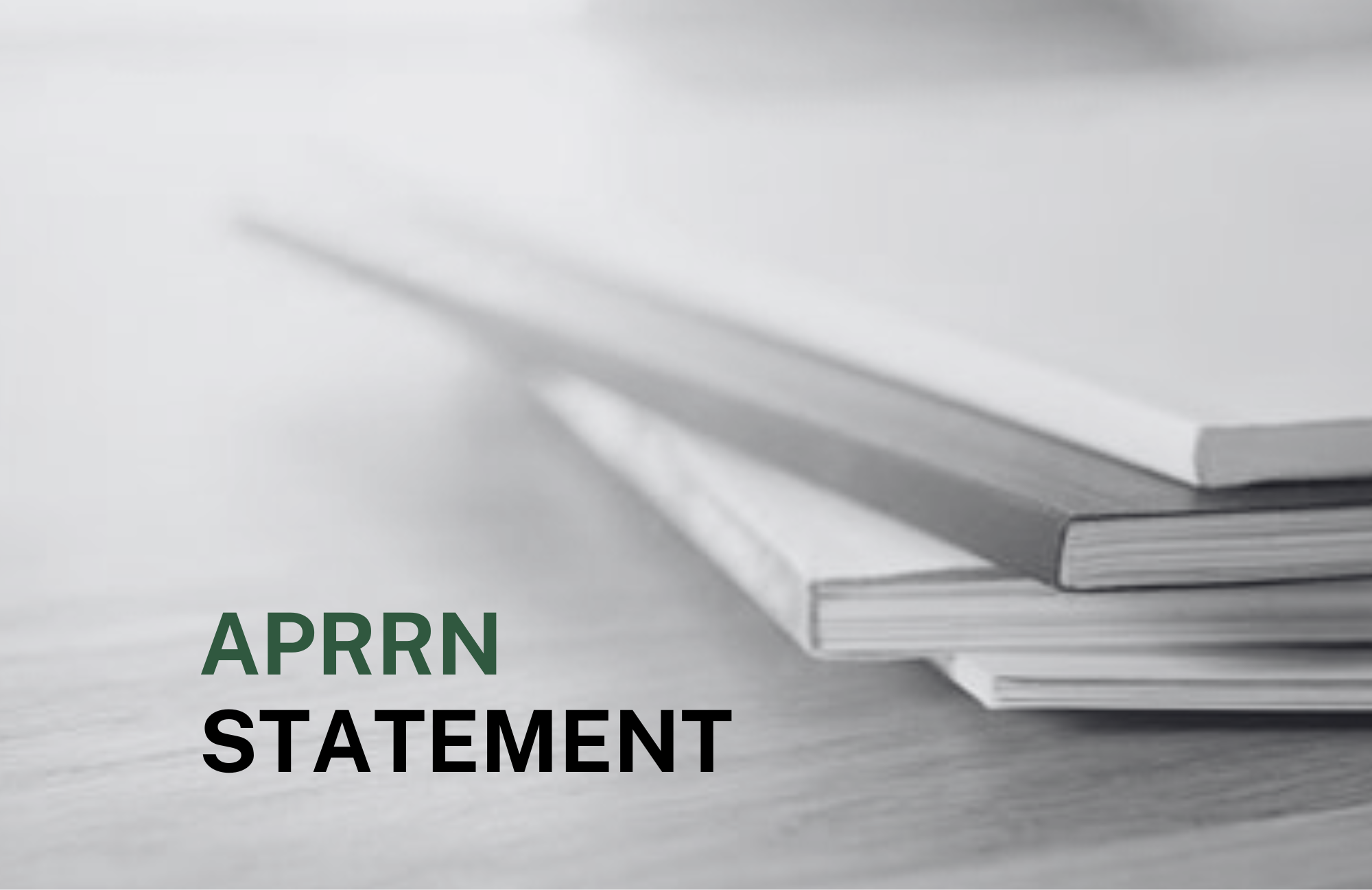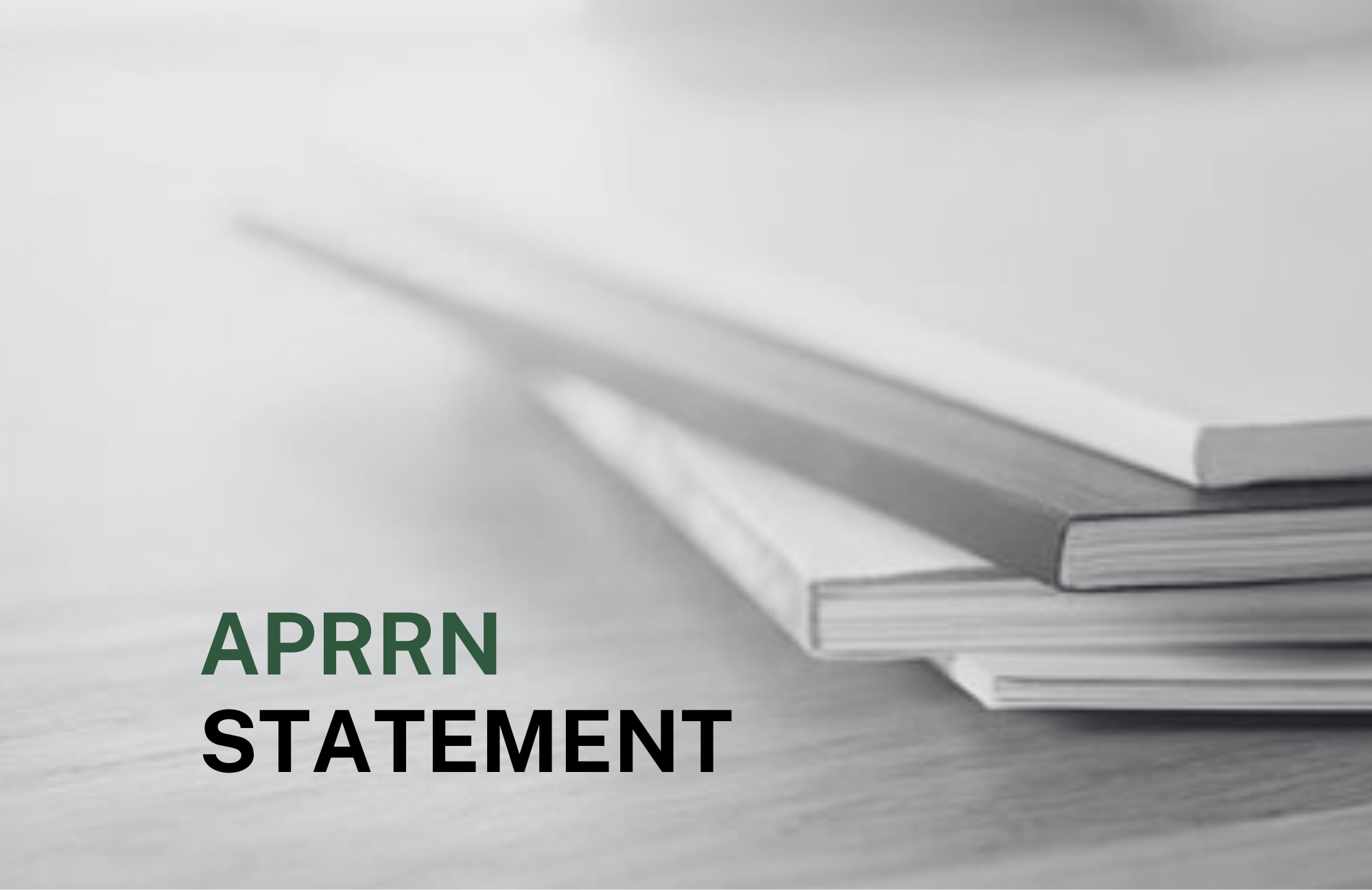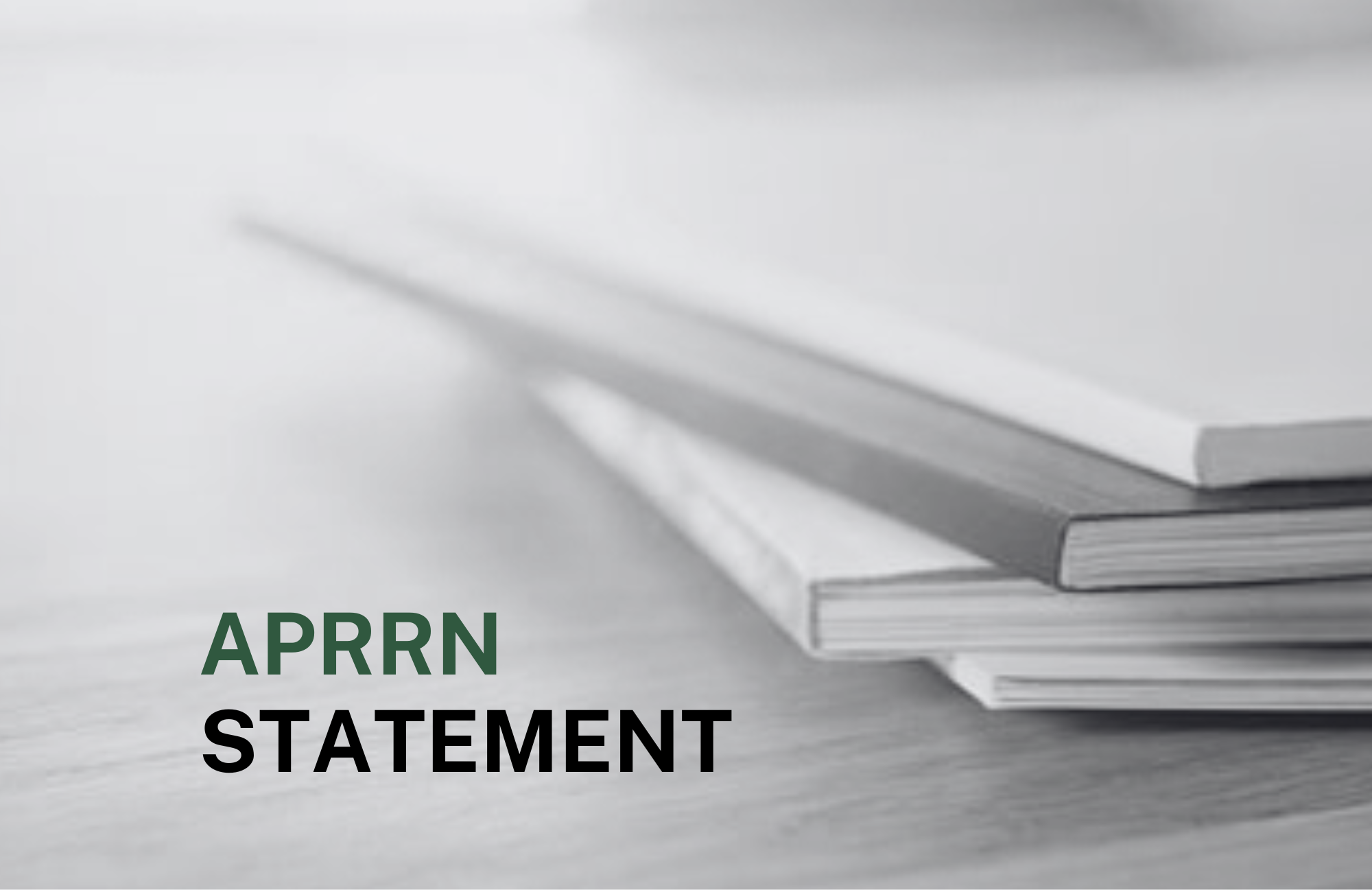The Asia Pacific Refugee Rights Network (APRRN) Statement on the Global Refugee Forum 2023
14 December 2023

The Asia Pacific Refugee Rights Network (APRRN) Statement on the Global Refugee Forum 2023
APRRN welcomes the convening of the second Global Refugee Forum (GRF) from 13-15 December 2023. During this forum, we acknowledge the commitments made by various States and stakeholders to support the practical implementation of the Global Compact on Refugees (GCR).
However, we express concerns about the apparent exclusivity within the GRF with limits applied to participation. This exclusionary approach has resulted in the absence of certain countries or entities that play crucial roles in regional refugee protection. The absence of civil society organisations from the GRF as well as refugee participants, who have been unable to obtain visas to attend, hampers regional cooperation and policy development concerning refugees.
APRRN urges governments to acknowledge the issue of very low refugee recognition rates within the Asia Pacific region and take necessary steps to uphold international standards in refugee assessment.
We also express concern about the lack of an effective mechanism to monitor and evaluate the implementation of State pledges. Pledges are only meaningful if they translate into action. Tracking progress on pledges made during the first GRF relied solely on self-reporting by the pledging entities themselves. Particularly for State pledges, there is a notable absence of mechanisms that encourage civil society and other stakeholders’ meaningful participation in formulating, implementing, and monitoring these pledges.
APRRN recommends:
- That a more formal and binding process be implemented to ensure accountability for acting on pledges made at the GRF and for the requirement that pledges include a wide variety of stakeholders in recognition of the whole-of-society approach outlined in the GCR.
- That future GRFs include a more open and inclusive process for the meaningful participation of NGOs, refugees, and other diverse stakeholders.
- That States adopt the following core text in their pledges to ensure alignment with their responsibilities under the GCR, and the Refugee Convention:
- The Government of [insert] will enact legislation that aligns with the Refugee Convention. The Ministry of [insert] is committed to strengthening its refugee status determination procedures, ensuring its independence, transparency, and professionalism.
- The Government of [insert] ensures that the living standards of refugees, including protected persons or persons with complementary status, are equivalent to those of nationals, as outlined in the Refugee Convention.
- The Government of [insert] is committed to stopping the arbitrary detention of asylum seekers, refugees, and other people on the move in situations of vulnerability. This will be achieved by making all decisions subject to independent review and by setting clear time limits for detention. The government will protect the right to health and the right to access justice for detained individuals.
- The Government of [insert] will ratify both the 1954 Convention relating to the Status of Stateless Persons and the 1961 Convention on the Reduction of Statelessness. This commitment signifies the Government’s dedication to upholding the fundamental human rights of Stateless individuals. The government will actively work towards establishing an effective Stateless determination procedure to ensure that those without nationality receive the necessary protections. The Government also aims to integrate safeguards into the nationality laws to prevent Statelessness at birth and later in life.
- The Government of [insert] will implement a locally contextualized high-quality resettlement program for individuals in need of international protection or those in vulnerable situations.
--------
Founded in 2008, APRRN is a network of over 250 civil society organisations and individuals in 28 countries, committed to protecting and promoting the human rights of refugees and other vulnerable groups on the move in need of protection in the Asia Pacific region. APRRN's activities are structured into key areas of joint advocacy, information sharing, and capacity building. The network is governed by an elected Steering Committee and has a Secretariat of 12 staff and consultants.
APRRN encourages pledgers to adopt a whole-of-society approach and consultation on shared learning in the development of pledges and programmes supporting refugees in the Asia Pacific region, particularly the meaningful and diverse involvement of persons of lived experience in these processes.
Recommended

May 22, 2025
APRRN Urgent Appeal to the Government of Pakistan to Immediately Halt Forced Deportations of Afghan Refugees
The Asia Pacific Refugee Rights Network (APRRN) express our grave concern over the ongoing forced deportations of Afghan refugees by the Government of Pakistan under the so-called “Illegal Foreigners Repatriation Plan.” In April 2025 alone, some 144,000 Afghans returned from Pakistan, including nearly 30,000 who were deported.

Oct. 5, 2024
Urgent Statement on the Rohingya Crisis and the Need for Regional Protection
We express our deep concern over the ongoing Rohingya crisis and the lack of a comprehensive and coordinated regional response to protect refugees in Southeast Asia. As the situation continues to deteriorate, we call for immediate action from ASEAN, its member states, and the international community.

Sept. 4, 2024
APRRN calls on Home Minister Saifuddin Nasution to free children in Malaysia!
“While children are killed and maimed in Myanmar, Palestine, and other countries around the world, Malaysia keeps those who have fled locked up indefinitely for seeking safety in its territory. This is wrong and unacceptable and must be changed in law and practice.” APRRN’s Co-Secretary General, Hafsar Tameesuddin.